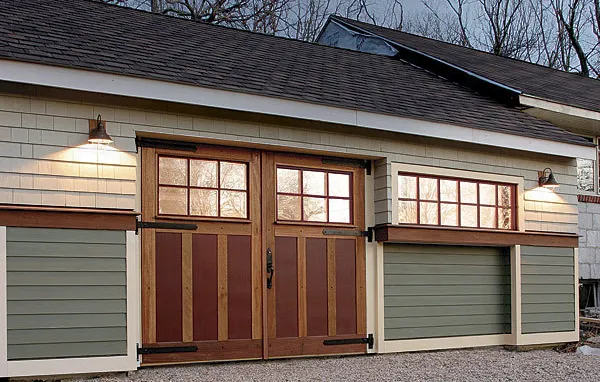Quieting a Garage Door Repair Sanger TX can significantly improve the overall functionality and reduce annoying noises.

In this comprehensive guide, I’ll walk you through the step-by-step process to identify the causes of the squeaking and provide effective solutions to get your garage door operating smoothly and quietly.
1. Identify the Source of the Squeak: The first step in addressing a squeaky garage door is to pinpoint the source of the noise. Common culprits include rusty or worn-out rollers, dry hinges, or insufficient lubrication on moving parts. By identifying the root cause, you can tailor your approach to effectively eliminate the squeak.
2. Visual Inspection: Conduct a visual inspection of your garage door and its components. Look for signs of rust, wear, or damage on the rollers, hinges, tracks, and other moving parts. Pay attention to areas where metal meets metal, as these are common locations for friction-induced squeaks.
3. Lubricate Moving Parts: Proper lubrication is crucial for minimizing friction and preventing squeaks. Use a silicone-based garage door lubricant to coat the rollers, hinges, springs, and any other moving parts. Avoid using WD-40 or similar products, as they can attract dust and dirt, leading to further issues.
4. Tighten Loose Hardware: Loose nuts, bolts, and screws can contribute to squeaks and rattles. Carefully inspect and tighten any loose hardware you find on the garage door, tracks, and opener. Use a wrench or socket set to ensure that all components are securely fastened.
5. Replace Worn-Out Rollers: Rollers can wear out over time, leading to increased friction and squeaking. If your garage door rollers are visibly worn, cracked, or chipped, consider replacing them with new, high-quality rollers. Nylon rollers are often quieter than metal ones and require less maintenance.
6. Inspect and Lubricate Springs: Torsion and extension springs are critical components of your garage door system. Inspect them for signs of wear, rust, or damage. Apply a thin layer of lubricant to the springs to reduce friction and minimize noise. Exercise caution when working with springs, as they are under tension and can be dangerous.
7. Check and Adjust Track Alignment: Misaligned tracks can cause increased friction, leading to squeaks. Inspect the horizontal and vertical tracks to ensure they are properly aligned. If you notice any misalignment, loosen the mounting brackets, adjust the tracks, and then tighten the brackets. Use a level to confirm that the tracks are straight and plumb.
8. Apply a Garage Door Lubricant: Garage door-specific lubricants are designed to provide long-lasting protection against friction and wear. Apply the lubricant to all moving parts, including the tracks, rollers, hinges, and springs. Be generous with the application, ensuring that the lubricant penetrates and coats the surfaces effectively.
9. Consider Noise-Reducing Accessories: If your garage door opener contributes to the noise, consider installing noise-reducing accessories. Vibration isolators or anti-vibration pads can help dampen the sound produced by the opener. Additionally, you can explore the option of upgrading to a belt-driven opener, known for its quieter operation compared to chain-driven models.
10. Inspect and Lubricate Weather Stripping: The weather stripping around your garage door can also contribute to squeaking if it’s dry or damaged. Inspect the weather stripping for wear and tear, and apply a silicone-based lubricant to keep it flexible. This helps prevent friction between the door and the weather stripping.
11. Professional Maintenance (if needed): If your garage door continues to squeak despite your efforts, or if you’re uncomfortable performing certain maintenance tasks, consider seeking professional help. A garage door technician can conduct a thorough inspection, identify underlying issues, and perform any necessary repairs or adjustments.
Conclusion:
Quieting a Garage Door Repair Sanger TX involves a systematic approach, from identifying the source of the noise and conducting visual inspections to lubricating moving parts and considering noise-reducing accessories. By following these steps carefully, you can effectively address common causes of squeaking and restore your garage door to smooth and quiet operation. Regular maintenance, including lubrication and hardware checks, can contribute to the overall longevity and performance of your garage door system. If you encounter persistent issues or are unsure about the maintenance steps, consulting a professional technician can provide additional expertise and ensure a quiet and efficient garage door operation.
Sanger Garage Door Experts
600 N Stemmons St, Sanger, TX 76266, United States
1-940-308-2092

Leave a Reply